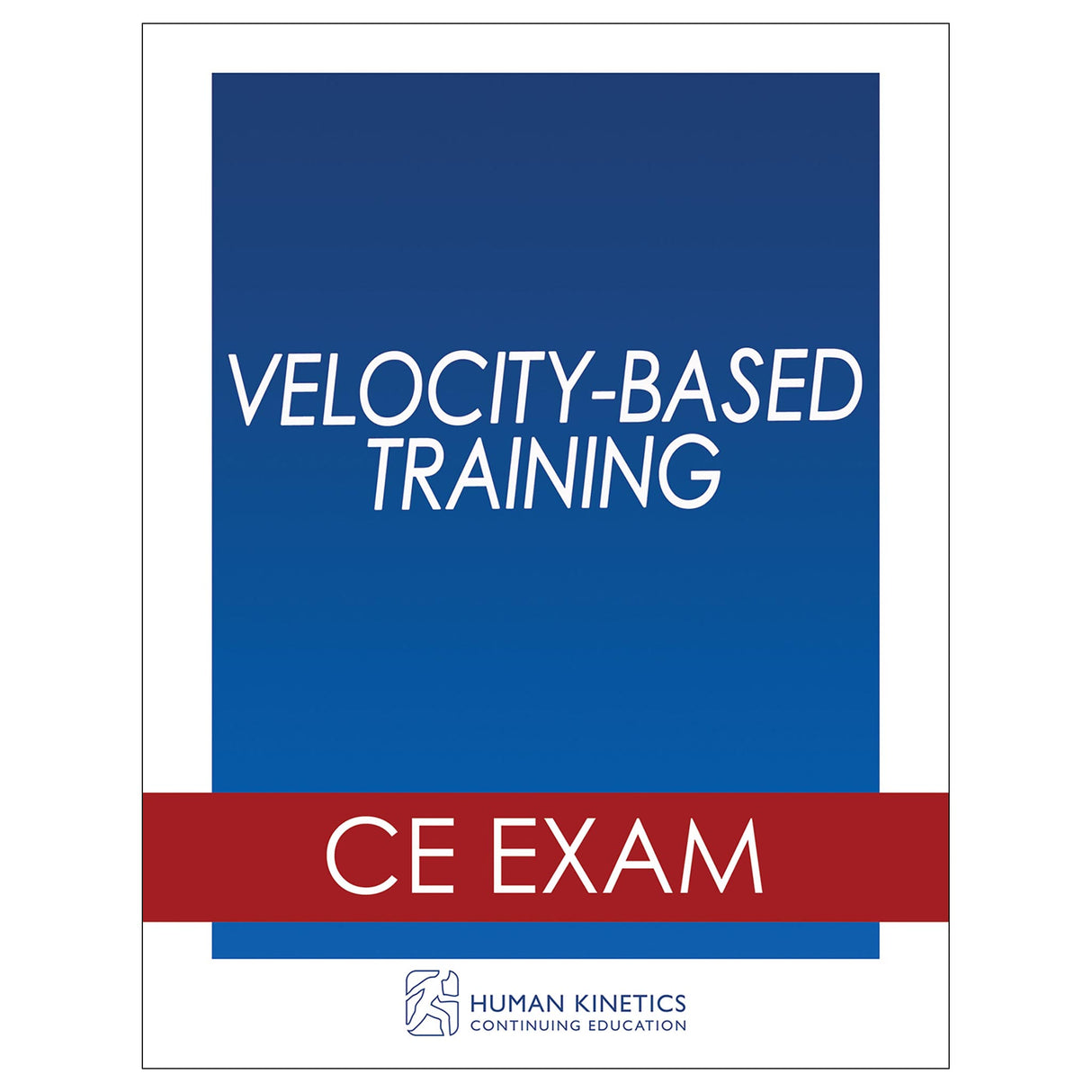Velocity-Based Training Online CE Exam Without Book
Author: Human Kinetics
$69.00 USD
Human Kinetics strongly recommends that you complete your exam within the calendar year of your date of purchase to ensure approved credits do not expire for your organization.
Consisting of 75 multiple-choice questions, this continuing education exam is designed to be taken after reading Velocity-Based Training. The exam will test your knowledge of the information presented in the book so you can incorporate velocity-based training (VBT) into your athlete’s training programs to build stronger and more powerful athletes.
Once you pass the exam, you can print a certificate for continuing education credits.
Learning Objectives
- Define velocity-based training (VBT) and explain the benefits of using VBT for improved performance.
- Articulate the relationship of concentric and eccentric actions to VBT.
- Choose the type of exercise and measuring protocol to implement VBT for desired adaptations.
- Analyze the various tools available for VBT.
- Explain the basic setup for linear position transducers and accelerometers.
- Describe the four special strength zones used for VBT.
- Connect the four special strength zones to desired adaptations of training.
- Compare the methods of calculating a 1RM.
- Explain the relationship between load and velocity.
- Apply VBT to develop an individual force–velocity profile for training.
- Recognize the relationship between the CNS and fatigue in training.
- Describe the role of VBT in monitoring recovery and fatigue.
- Utilize velocity-loss monitoring to stimulate specific training adaptations.
- Apply the concept of periodization in planning for various athlete and sport needs.
- Use VBT to train in the appropriate special strength zones throughout the year.
- Describe the main goals of the five training phases.
- Apply training parameters to train in the appropriate VBT special strength zones for the early off-season and mid–off-season.
- Apply the correct velocities and velocity losses to the various types of power outcomes.
- Recognize the impact of the characteristics of the sport on the distribution of in-season training time.
- Identify the benefit of undulating periodization when using VBT for in-season training.
- Explain the keys to maximizing the use of VBT in an annual training plan.





